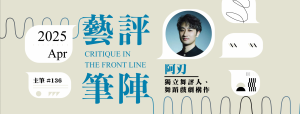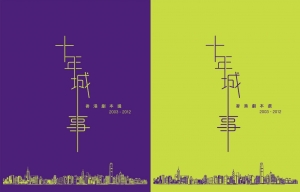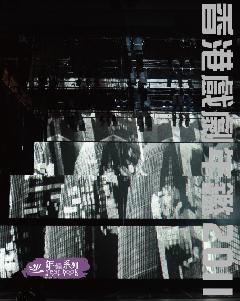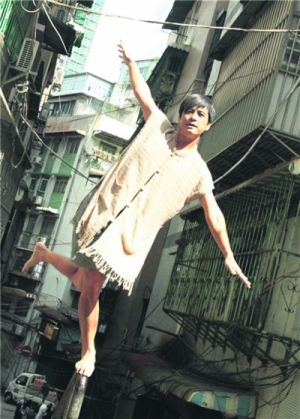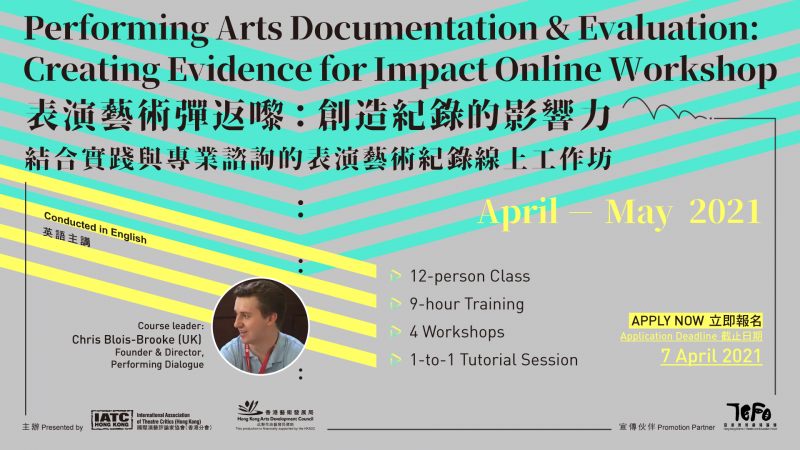此介紹只有英文版本。
Run by Chris Blois-Brooke, the Founder & Director of Performing Dialogue, this workshop will explore methodologies, strategies, and tools that Performing Arts practitioners can employ to create a body of documented evidence that demonstrates, explains, proves, and communicates the impact of their Performance work.
Delivered online through a mixture of lecture aspects, interactive group activities, discussion, and individual activities, the session will cover an introduction to the ‘Knowledge Management’ lifecycle, specifically: ‘Theories of Change’, ‘Documentation Strategies’, ‘Creative & Participatory Documentation Methods’, ‘Audience Segmentation’, ‘Disseminating & Communicating Impact’, and ‘Using Evidence to Boost Practice’.
The workshops will employ a very broad definition of ‘documentation’, one that involves the use of resources for many purposes such as funding applications, advocacy, public relations, marketing, organisational learning, and staff training. For more information about what ‘Documentation’ involves, and why it is so important for Performing Arts organisations, you can read an article by the Course Leader here:
https://www.padocufuture.hk/wp-content/uploads/2020/12/Chris-Blois-Brooke_Documentation-Fundamentals_for-upload.pdf
This workshop series will be complemented with some homework tasks and a 1-to-1 tutorial with the Course Leader. This will allow you, by the end of the programme, to have completed a detailed plan and structure for a Documentation and Evaluation initiative of your own that is specific to your own context and Performing Arts practice. As such, participants should have a working knowledge of English and should have some professional practice that they are willing to share, and use, as a case study during the training.
#Workshop 1: 26 April, 2021 (Mon), HKT 8-10PM
【Introduction to Documentation & Evaluation】
This introductory session will explore the benefits of Documentation and Evaluation for Performing Arts practitioners. We will look at some theories, practices, and purposes of Documentation and Evaluation. The workshop will also help participants to identify the specific priorities they want to focus on in the planning of their own Documentation and Evaluation initiative.
#Workshop 2: 28 April, 2021 (Wed), HKT 8-10PM
【Strategic Planning for Documentation & Evaluation】
The second workshop will focus upon understanding and creating a ‘Theory of Change’ for your organisation or project. This is a visual representation of the impact your Performing Arts practice is having - it is both a document in its own right and a tool that we will use for future workshops to help you outline how you are going to Document and Evaluate your work going forwards.
#Tutorial (1 Hour per Organisation): 29 April to 11 May, 2021
Each participating organisation (or individual, if you are an independent practitioner) will have a 1-to-1 tutorial session with the Course Leader, lasting an hour. This will be an opportunity to ask for help and support in finalising your ‘Theory of Change’ document that is specific to your own Performing Arts practice. You are also welcome to bring any other questions about Documentation and Evaluation in relation to your specific context.
#Workshop 3: 12 May, 2021 (Wed), HKT 8-10PM
【Documentation Strategies】
This workshop will explore how we use a ‘Theory of Change’ to develop a comprehensive plan for your own Documentation and Evaluation initiatives. It will explain different formats of documentation, including both conventional and more creative choices, and how these can be matched to the different types of stakeholders that you are trying to target with your Documentation - whether funders, other Performing Arts professionals, or the wider community. It will help you to identify exactly what types of media you need to collect as part of your initiative and how to make sure these demonstrate the impact you are trying to prove.
#Workshop 4: 14 May, 2021(Fri), HKT 8-10PM
【Planning for Knowledge Management】
The final workshop session is an opportunity for organisations (or individuals, if you are an independent practitioner) to share their plans and intentions for their Documentation and Evaluation initiatives. We will explore how these fit into the ‘Knowledge Lifecyle’ of your organisation, or individual practice, so that you can be sure that the resources you create will be used in the most effective and impactful way in the future.






